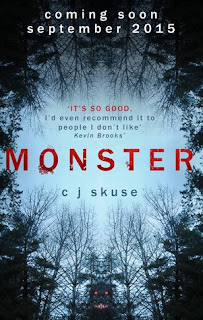I’ve been a creative writing teacher for about five years now, and a published author for nearly as long. In that time I’ve run courses in multiple countries, teaching both children and adults (currently I’m finishing up a class for Vietnamese university students, here in Hanoi). And in that time, I’ve realized something important: I’m not sure I know what I’m talking about. Every piece of advice I’ve ever given, I’ve also ignored. So please take the following tips with a grain of salt. Here are five things that I try, and sometimes fail, to do as a writer.
1) Just get to the end!
 When writing a longer project (like a novel, or even a novella) you’re always better off setting revision aside in the early stages so that you can focus on completing a full draft. After all, it’s only when you have a complete manuscript that you’ll truly understand what this project is meant to be. Also, doing this will keep you from falling into the trap of endlessly writing and re-writing a chapter that’s destined to wind up on the cutting room floor.
When writing a longer project (like a novel, or even a novella) you’re always better off setting revision aside in the early stages so that you can focus on completing a full draft. After all, it’s only when you have a complete manuscript that you’ll truly understand what this project is meant to be. Also, doing this will keep you from falling into the trap of endlessly writing and re-writing a chapter that’s destined to wind up on the cutting room floor.Or… at least that’s how it works in theory. I’m currently on my 4th full rewrite of the opening chapters of my next novel. So I see this as similar to advice about eating right—just because I believe it to be important, doesn’t mean I always do it.
2) “Inspiration” is not a thing you wait for.
Waiting for your muse to strike? Well, why not help your muse out a bit by opening up that story you’ve been working on? The unexpected flash of inspiration that arrives unbidden while you’re chopping onions, or going for a jog, happens more often in bad movies than it does in real life. There is no substitute for time at the keys.
(Note: This is not to say you shouldn’t jog. Jogging is also important.)
3) Don’t beat yourself up for slow days.
Even when you diligently make time for your writing, that doesn’t always mean you’ll actually feel productive. Sometimes you’ll feel slow, or foggy. Sometimes you’ll do nothing but re-work the same lousy paragraph for hours on end. It’s important to realize that slow days like this aren’t only inevitable, they’re also part of the bargain.
Here is my bare-bones definition of an acceptable writing day: I opened up the document. I didn’t escape to facebook, or anywhere else online. That’s it.
4) When in doubt, a description!
When I don’t know what should happen in a given scene, I jump into a detailed description. Whether it’s about an object, a vista, or an article of clothing one of my characters is wearing; description always gives me a way to move forward. But this particular piece of advice could just as well read: “When in doubt, some witty repartee!” or, “When in doubt, go to your strengths!” Description happens to be mine. Find the thing you do best (this is generally also the thing you most enjoy doing) in your writing, and you can use it to get out of almost any problem.
.
 5) There is nothing you love that isn’t worthy of being written about.
5) There is nothing you love that isn’t worthy of being written about.Even if what you love seems silly to other people. Even if what you love sometimes seems silly to you. The fact that you love it is all that counts. After all, you’re going to need that love to get you through all the slow days.
For more information on Alexander Yates, you can visit his website or follow @TheOtherYates on twitter. The Winter Place is his first novel for younger readers and is published in October 2015







